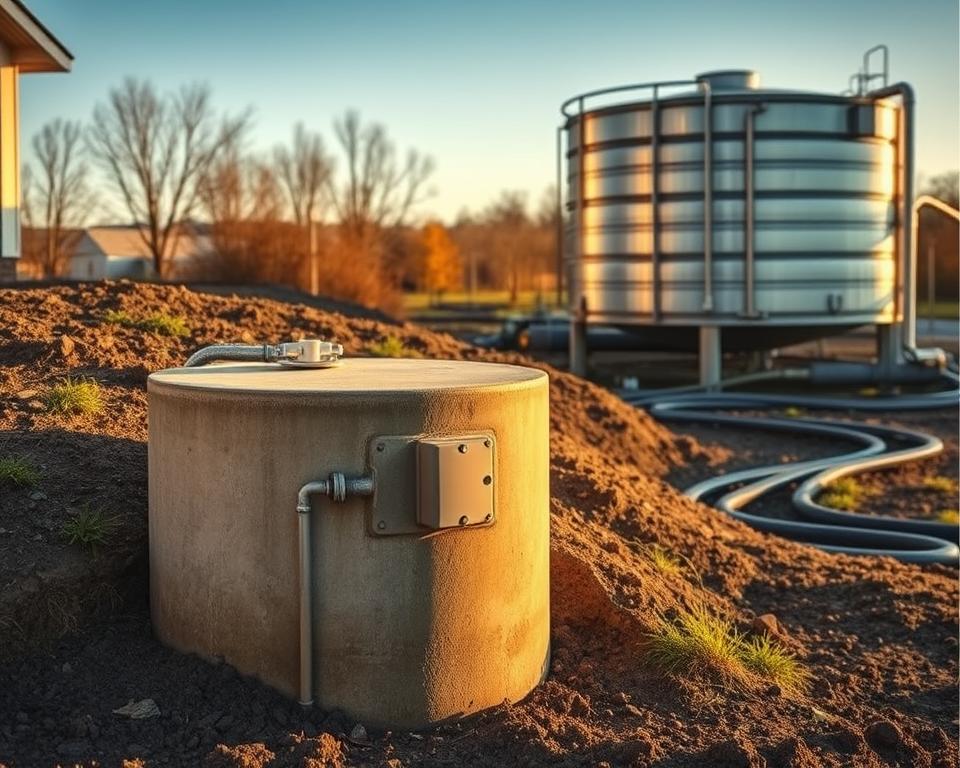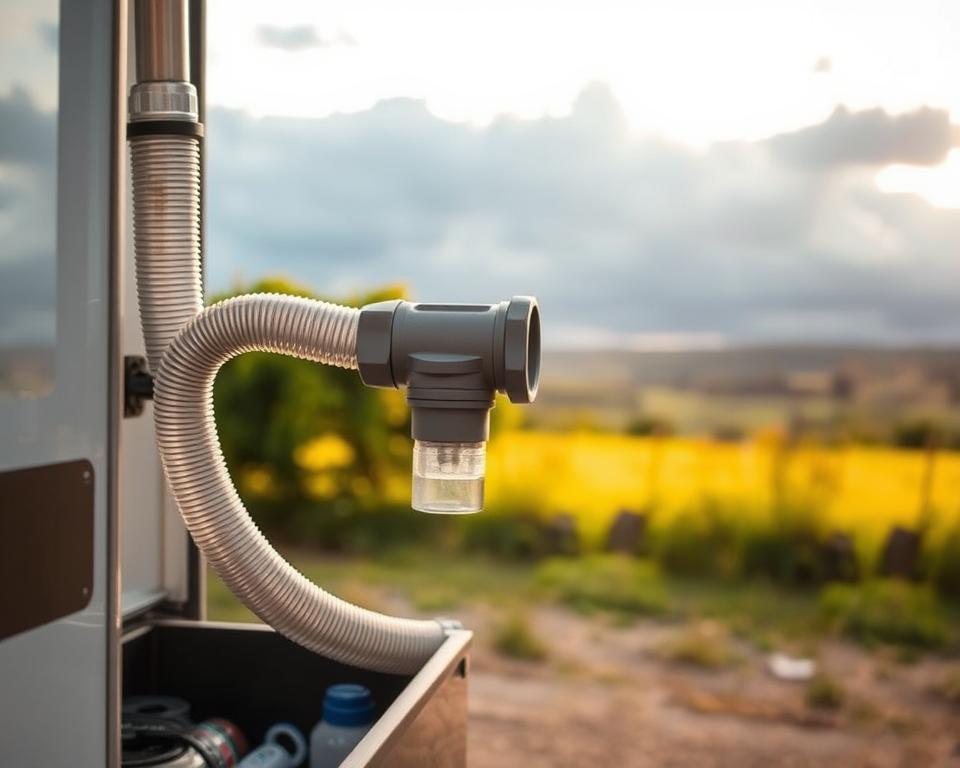Understanding Quotes from Burbank Septic Tank Pumping Companies
Septic System Inspection: Guarantee Your Security
Have you ever thought about the importance of your septic system and the hazards of its failure? Today, where efficient sewage management is critical, septic system inspections are indispensable. They find issues early, warding off health risks and costly repairs. Particularly in rural areas, homeowners need to make these assessments a top priority for property safety and environmental cleanliness.
Essential Points
- Periodic septic system inspections are essential for heading off costly repairs.
- Septic tank analysis can detect problems early, protecting public health and ecosystem.
- A qualified septic inspection entails thorough examinations by trained professionals.
- Knowing your septic system can enhance its longevity and efficiency.
- Omitting to inspect can lead to serious health risks and property damage.
Understanding the Importance of Septic Systems
Septic systems are integral for managing household wastewater, notably where there’s no municipal sewage link. They process on-site wastewater treatment, holding harmful pollutants at bay. This process is vital for environmental safety.
Regular maintenance and checks are necessary for septic systems to safeguard community health effectively. A system in good condition halts wastewater leaks. These leaks can contaminate water sources, placing drinking water and community health at risk.
There’s a clear link between a well-managed septic system and environmental protection. Effective operation of these systems is key to cutting pollution and fostering sustainable lifestyles with septic tank cleaning companies near me.
What Happens During a Septic System Inspection
The septic system inspection involves key steps to check its functionality and safety. Experts from All in Sanitation perform a detailed review, focusing on various elements of the system. They aim to ensure everything is in top shape.
During the inspection, technicians check the septic tank, looking for any leaks or pipe issues. They measure the septic tank’s liquid levels to guarantee optimal performance. This comprehensive check halts problems from get worse, preventing contamination and failure.
Understanding these essential steps enables homeowners to manage their septic systems effectively. By identifying issues early through a proper inspection, the system’s life can be considerably extended. This shields against potential risks.
Key Parts Checked in a Septic System Inspection
A comprehensive septic system inspection covers key components to ensure its smooth functioning. The initial focus is on the septic tank, a central element of the system. Inspectors assess the tank’s condition, searching for wear or damage signs. They inspect the tank walls, inlet and outlet pipes, and look for any blockages.
Inspectors also evaluate the drain field, vital for filtering effluent back into the groundwater. They look for standing water or odd vegetation indicating issues. The distribution box’s flow and distribution are verified to confirm consistency across drain lines.
The septic baffle’s health is another critical check. Technicians ensure that the baffles are intact and operate properly, blocking sludge from reaching the drain field. They also measure sludge and scum levels to ensure they are within safe limits.
The inspection’s closing phase is checking the system’s watertight integrity. Inspectors ensure that the tank’s liquid level is normal, avoiding any potential leaks or overflows. This full assessment helps detect minor problems before they become major repairs, thus protecting the septic system’s health.
| Component | Inspection Focus | Significance |
|---|---|---|
| Septic Tank | State of walls, pipes, and obstructions | Critical for waste collection |
| Drain Field | Standing water, vegetation anomalies | Maintains proper effluent filtration |
| Distribution Box | Flow and distribution checks | Sustains balanced drainage |
| Baffles | State and function | Prevents sludge migration |
| Liquid Level | Check of normal range | Prevents leaks and contamination |
Typical Problems Detected in a Septic System Inspection
In septic system inspections, experts often detect numerous problems that reduce system efficiency. Foremost are overloaded tanks, usually because of too much water use or unnoticed leaks. This condition prevents the system from processing wastewater correctly, causing backups and further issues.
Damage or malfunction in pipes is another usual issue found. Such faults impede wastewater flow and can lead to expensive fixes if ignored. Clogged filters also pose significant problems, lowering system performance and creating environmental risks.
Poor maintenance aggravates these septic problems. Through regular checks, such issues can be spotted and fixed early. This preventive approach saves homeowners from large repair costs and secures community health.
Duration of a Septic System Inspection
A typical septic inspection lasts from two to four hours. Factors like property size and septic complexity impact this duration. Should unanticipated problems arise or bad weather restrict access, inspection times may stretch. Planning ahead with these timeframes in mind enables homeowners to plan efficiently for a detailed check.
It’s recommended for homeowners to observe the inspection. It allows them to seek clarifications and hear the inspector’s observations firsthand. Arranging this for a time when full attention can be given improves the experience and final result.
| Variable | Time Range |
|---|---|
| Basic inspection | 2 – 3 |
| Complex system | 3 – 4 |
| Unforeseen issues | 4+ |
How Often of Septic System Inspections
Consistent septic inspections are crucial to maintain your system’s service life and performance. It’s commonly recommended for homeowners to have their septic system inspected every three years. This frequency may be modified depending on factors like the size of your household, the volume of daily water use, and the system’s age.
Bigger households or homes utilizing garbage disposals might need inspections at shorter intervals. Following the right maintenance schedule is vital. It assists detect potential problems early and ensures your system operates efficiently.
Here’s a helpful table outlining factors that might affect your inspection frequency:
| Factor | Suggested Interval |
|---|---|
| Standard Household (2-3 people) | Every 3 years |
| Larger Household (4+ people) | Every 1-2 years |
| Home with Garbage Disposal | Every 1-2 years |
| Older Septic System | Annually |
Sticking with a routine septic maintenance plan delivers peace of mind. It forestalls hefty repairs and keeps your household safe and sanitary.
Results of Ignoring Regular Septic System Inspections
Not scheduling routine septic inspections raises the risk of system failures. Initially minor issues can snowball into larger ones, demanding high-priced repairs. Wastewater backups from these failures jeopardize homes and the environment, risking groundwater contamination.
Unaddressed septic issues expose people and pets to harmful bacteria and diseases. Homeowners could prevent big bills with regular inspections. Skipping routine maintenance can inflate a small problem into a larger crisis, disturbing your daily life and causing stress.
The financial burden of replacing an entire septic system can be overwhelming. Homeowners bear the full cost. However, ongoing inspections allow early problem detection, thwarting issues from worsening. Consistent upkeep not only prolongs the system’s life but also rescues homeowners from potential financial and environmental disasters.
Advice for Owners: Maintaining Your Septic System
For homeowners, septic system care is vital for its longevity and function. Practicing proper maintenance tips secures smooth operation and reduces repair costs. Small actions can greatly improve septic tank performance.
Reducing water use in the home is important. Small changes like repairing leaks and choosing efficient fixtures reduce strain on the system. Households should be aware of their water consumption.
Correct waste handling is key. Do not flush items such as wipes, sanitary products, and grease – they disrupt the system’s balance. Dispose of such materials properly, using refuse receptacles or compost.
Limiting strong chemicals is also vital. Household cleaners can damage the beneficial bacteria in your septic tank. Choose eco-friendly cleaning products to preserve this crucial ecosystem.
Regular checks on the drain field area are essential for proper functioning. Watch for saturated soil or standing water, signs of possible problems. These issues require quick action.
| Action | Rationale |
|---|---|
| Conserve water | Prevents system overload |
| Properly dispose of waste | Maintains balance of the tank |
| Limit harsh chemicals | Protects beneficial bacteria |
| Inspect drain field | Identifies potential problems early |
Embracing these septic system maintenance strategies will sustain your septic care at its best. This ensures a functional, enduring system for the future.
Professional Septic Inspection Services
Engaging professional septic inspection services is crucial for homeowners. Companies like All in Sanitation offer detailed septic system evaluations. Their skilled experts ensure no major issue goes unnoticed.
These professional septic technicians employ sophisticated methods to detect problems. This capability is key for ensuring your septic system’s longevity and your property’s health. They educate homeowners on how to keep your system functioning well.
Advantages of Working with a Certified Septic Inspector
Working with a certified septic inspector offers critical rewards for homeowners. These inspectors have deep knowledge of local regulations and industry norms. Their expertise guarantees comprehensive, accurate inspections, reducing the risk of missing key issues.
These experts have the skills to identify a larger spectrum of potential issues. Because of their advanced training, certified inspectors can detect subtle signs of deterioration or failure. This ability secures problems are handled early, reducing homeowners significant costs and avoiding severe problems later.
Another important benefit is the peace of mind they provide to homeowners. Realizing a qualified professional is evaluating their system builds confidence. This confidence about the inspection’s quality provides extra security, supporting the system’s reliability.
In summary, the positives of enlisting a certified expert for septic inspection undeniably surpass any cost involved. These benefits include pinpoint accuracy, early detection of potential problems, and a strong sense of security among homeowners about their septic systems.
Wrapping It Up
Routine septic inspections are indispensable for homeowners who wish to avoid hefty repairs. These checks go beyond mere routine. They emphasize the critical role of maintenance in keeping septic systems running smoothly.
Partnering with certified experts, such as All in Sanitation, allows homeowners to sustain the efficacy of their septic systems. This forward-thinking strategy does more than just defend property value. It also enhances community well-being and environmental health.
Being proactive on septic inspections safeguards your investment. It ensures your home remains a secure and inviting haven for your loved ones.



